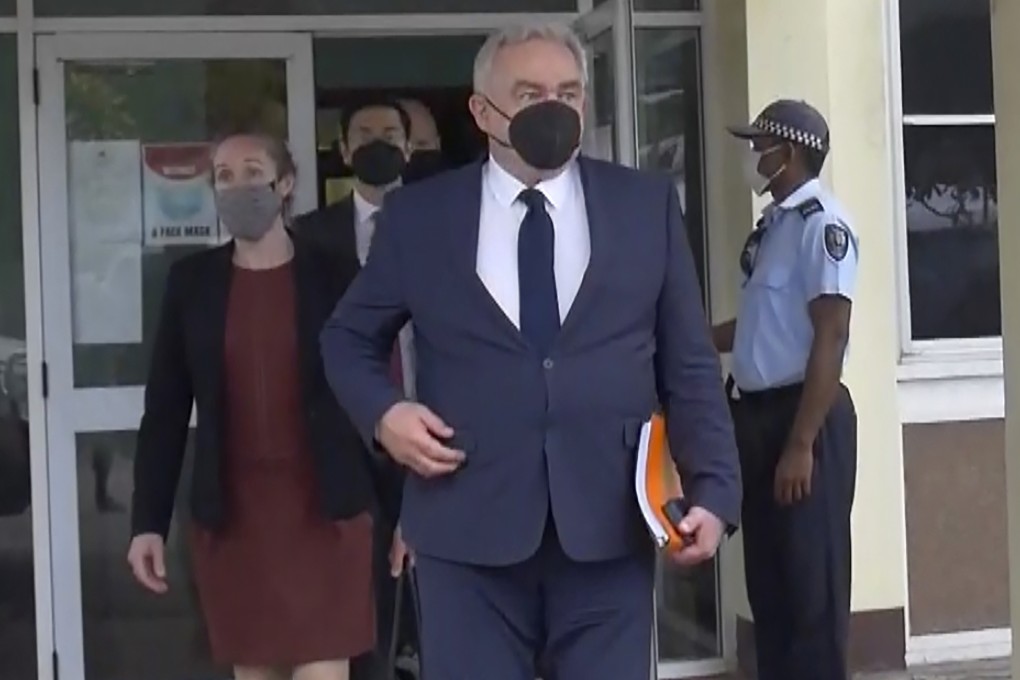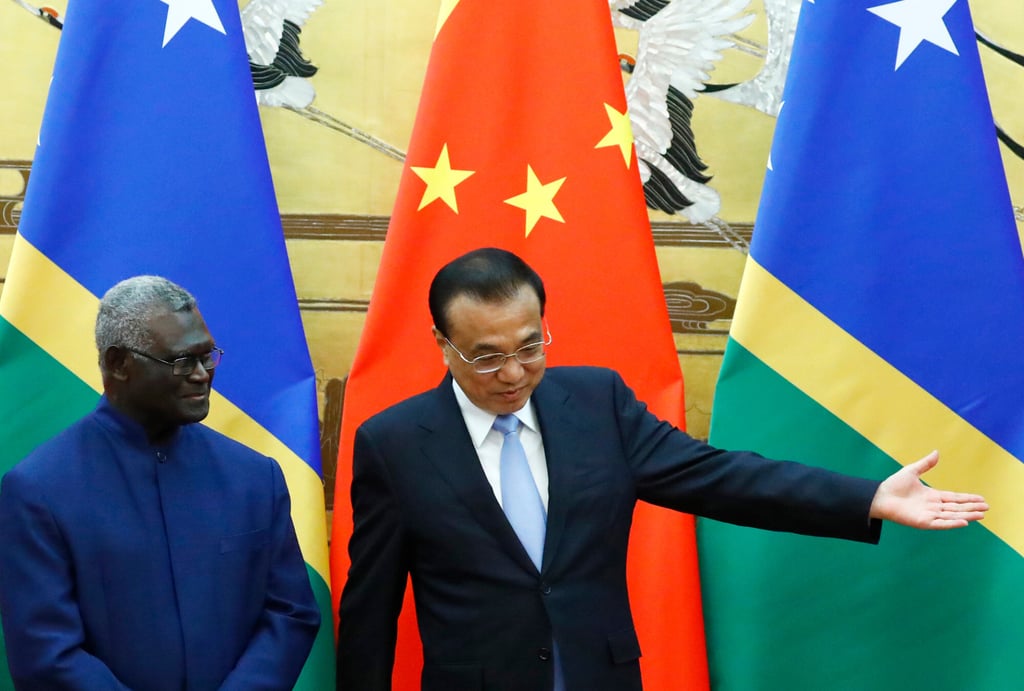US delegation warns Solomon Islands prime minister over security pact with China
- If Beijing maintains a military presence in the Solomons, White House says US will ‘respond accordingly’
- PM Manasseh Sogavare says deal has ‘solely domestic applications’ and pledges ‘no military base, no long-term presence, and no power projection capability’

A delegation from the United States told Solomon Islands Prime Minister Manasseh Sogavare on Friday its concerns about a security pact he had signed with China and warned that should Beijing maintain any military presence there, the US would “respond accordingly”.
The White House also said it would expedite the opening of a US embassy in Honiara, the island nation’s capital, and the two countries agreed to initiate a strategic dialogue and a programme on maritime domain awareness as well as advance a range of other initiatives.

The delegation, led by National Security Council Indo-Pacific Coordinator Kurt Campbell, flew to Honiara after it was announced this week that China and the Solomons had signed the security agreement. While details have not been released, a draft of the deal – leaked in March by political opponents of Sogavare – would allow the Chinese navy to dock in the islands and Beijing to deploy its police and armed forces there.
According to the White House, Solomon officials emphasised that the pact with China “had solely domestic applications”; Sogavare tried to assure the delegation that “there would be no military base, no long-term presence, and no power projection capability” as a result of the agreement.
The US delegation met with senior officials from those three countries in Hawaii during the first leg of the delegation’s Pacific tour.
